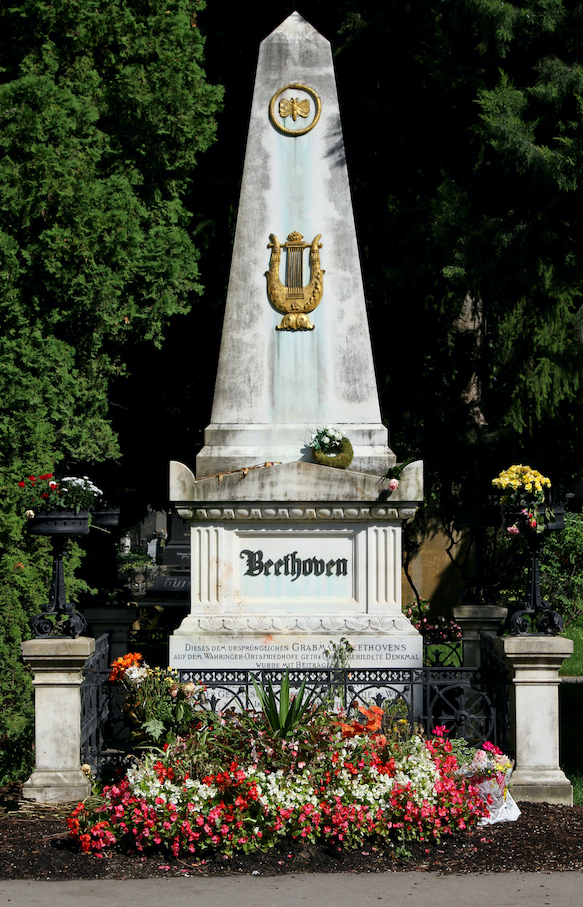
Early Life
Ludwig van Beethoven was born on December 17, 1770, in Bonn, a city in the Electorate of Cologne, which was part of the Holy Roman Empire (in present-day Germany). He was baptized the day after his birth, December 17, so it’s likely he was born on December 16. Beethoven’s family was musically inclined; his grandfather, Ludwig, was a prominent musician in Bonn, and his father, Johann, was a tenor singer and instrumentalist. Johann recognized his son’s talent early on and sought to promote Ludwig as a child prodigy, much like Mozart.
Beethoven’s early musical education was rigorous, though not always supportive. His father was a harsh and demanding teacher, often resorting to physical discipline. Despite this, Beethoven’s talent was undeniable, and he quickly outgrew the musical opportunities in Bonn. He studied composition with Christian Gottlob Neefe, who introduced him to the works of Johann Sebastian Bach and Wolfgang Amadeus Mozart.
Move to Vienna and Early Career
In 1792, Beethoven moved to Vienna, then the cultural capital of Europe, to further his studies. He intended to study with Joseph Haydn, but their relationship was somewhat strained, leading Beethoven to seek other teachers, including Johann Georg Albrechtsberger and Antonio Salieri. Vienna became Beethoven’s home for the rest of his life.
Beethoven quickly gained a reputation as a virtuoso pianist and improviser. His early compositions, including the “Pathetique” Sonata (Op. 13) and the “First Symphony” (Op. 21), showed his mastery of the classical style established by Mozart and Haydn, but they also hinted at the bold, innovative spirit that would characterize his later work.
Musical Influences and Innovations
Beethoven’s music was profoundly influenced by the Classical period, particularly the works of Mozart and Haydn. However, he pushed the boundaries of the classical forms, introducing greater emotional depth and complexity. His works are often seen as a bridge between the Classical and Romantic periods, and he is considered one of the key figures in the transition to Romanticism.
His middle period, often referred to as his “heroic” phase, includes some of his most famous works, such as the “Third Symphony” (Eroica), the “Fifth Symphony,” and the “Emperor” Piano Concerto. These works are marked by their boldness, emotional intensity, and expanded structures, reflecting Beethoven’s personal struggles and triumphs.
Struggles with Deafness and Personal Life
Around 1798, Beethoven began to notice symptoms of hearing loss. By the early 1800s, his hearing had deteriorated significantly, and by the end of his life, he was almost completely deaf. This condition caused Beethoven immense psychological distress, as music was his life’s passion and work. He wrote a poignant letter known as the “Heiligenstadt Testament” in 1802, expressing his despair and contemplating suicide but ultimately resolving to continue living for his art.
Despite his deafness, Beethoven continued to compose, relying on his inner hearing and knowledge of musical theory. Some of his most profound works were composed during this period, including the “Late String Quartets” and the “Ninth Symphony,” which contains the famous “Ode to Joy.”
Beethoven’s personal life was marked by a series of unrequited loves. He never married, though he fell deeply in love with several women, many of whom were his students or members of the aristocracy. His “Immortal Beloved” remains a mystery, though it is clear that this unfulfilled love caused him great anguish.
Later Years and Legacy
In his later years, Beethoven’s health declined, and he became increasingly isolated. His financial situation was often precarious, though he received support from patrons who recognized his genius. His later compositions became more introspective and complex, with a focus on counterpoint and formal innovation.
Beethoven’s greatest achievement as a composer is often considered to be his “Ninth Symphony,” which broke new ground in symphonic form by incorporating vocal soloists and a chorus in the final movement, a setting of Friedrich Schiller’s “Ode to Joy.” This work has become a symbol of unity and brotherhood worldwide.
Other significant achievements include his 32 piano sonatas, which are a cornerstone of the piano repertoire, and his 16 string quartets, which are among the most challenging and profound works in the chamber music genre.
Ludwig van Beethoven’s life was a testament to the power of the human spirit to overcome adversity. His innovations in music have left an indelible mark on the history of Western music, and his works continue to inspire and move audiences around the world. Despite the personal hardships he faced, including deafness and unfulfilled love, Beethoven’s music remains a celebration of the human experience, full of passion, resilience, and beauty.
-Nguyễn Tường Khanh-
